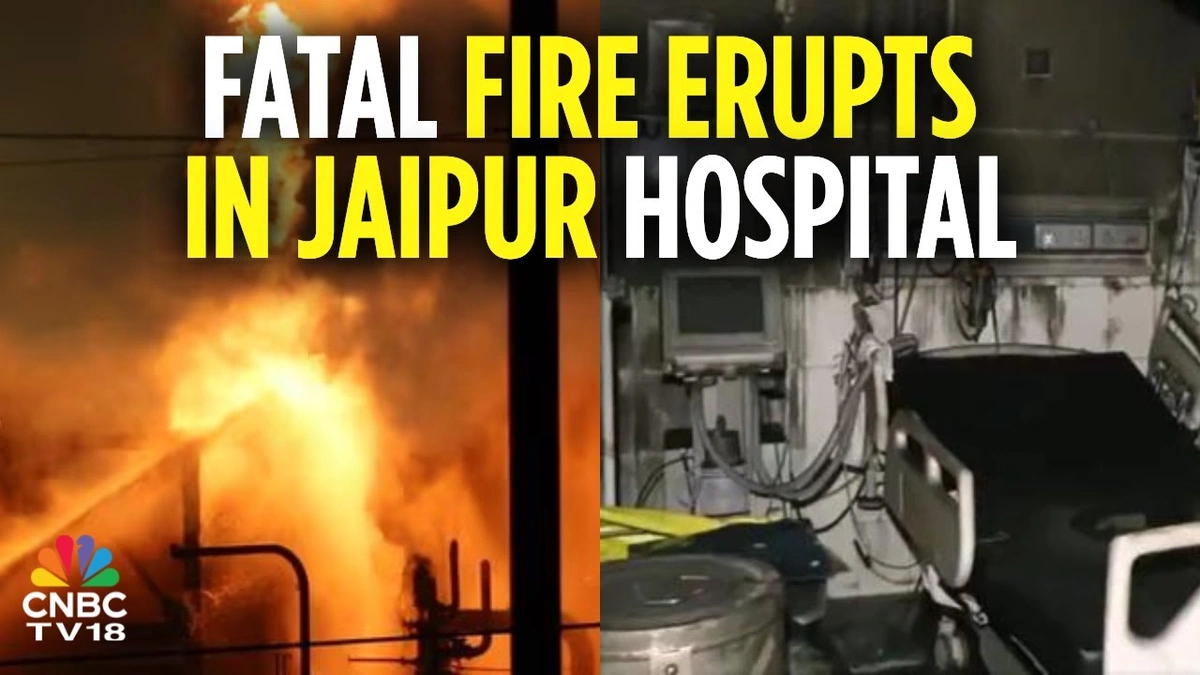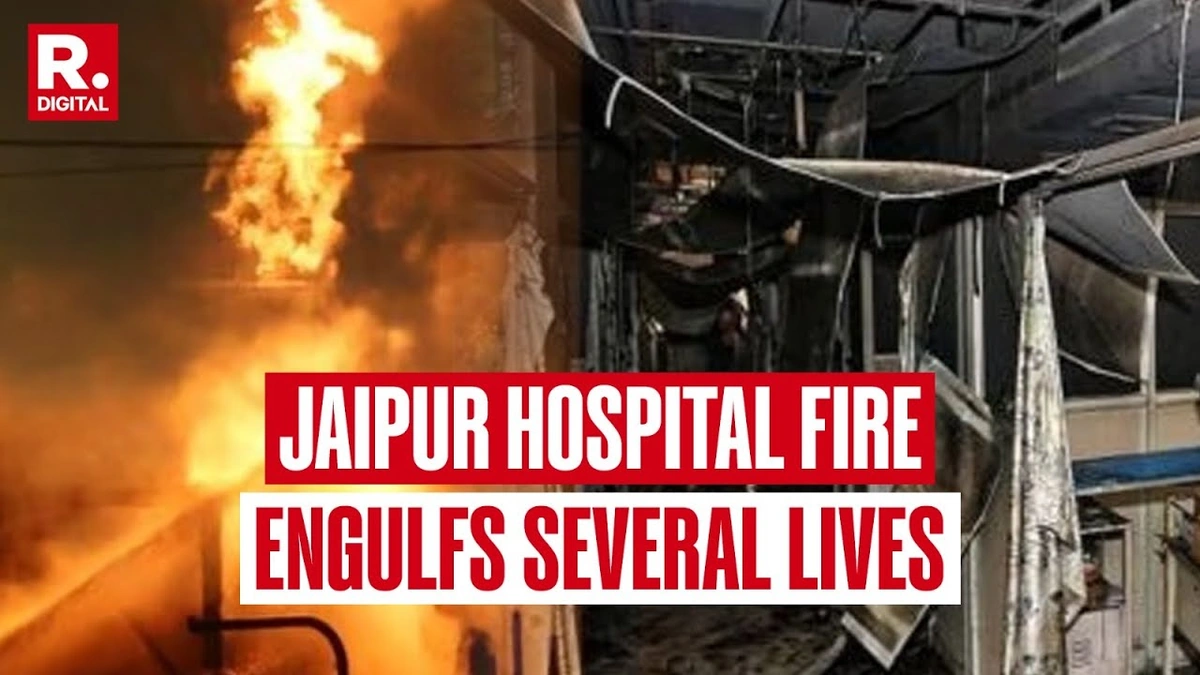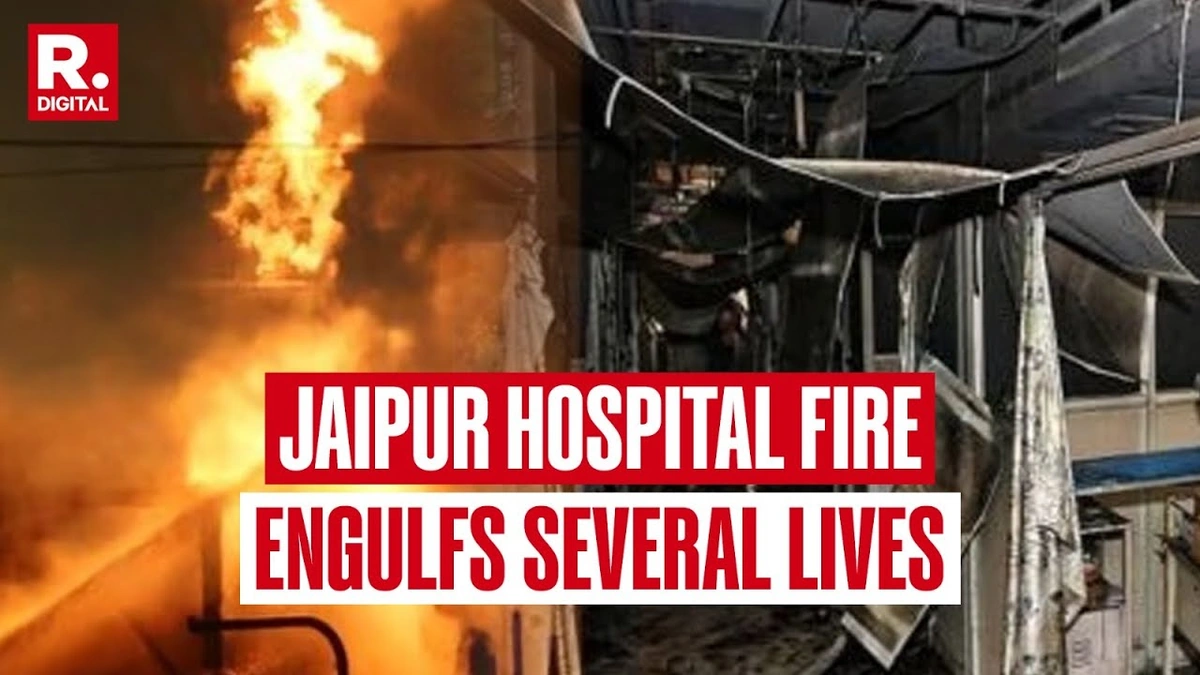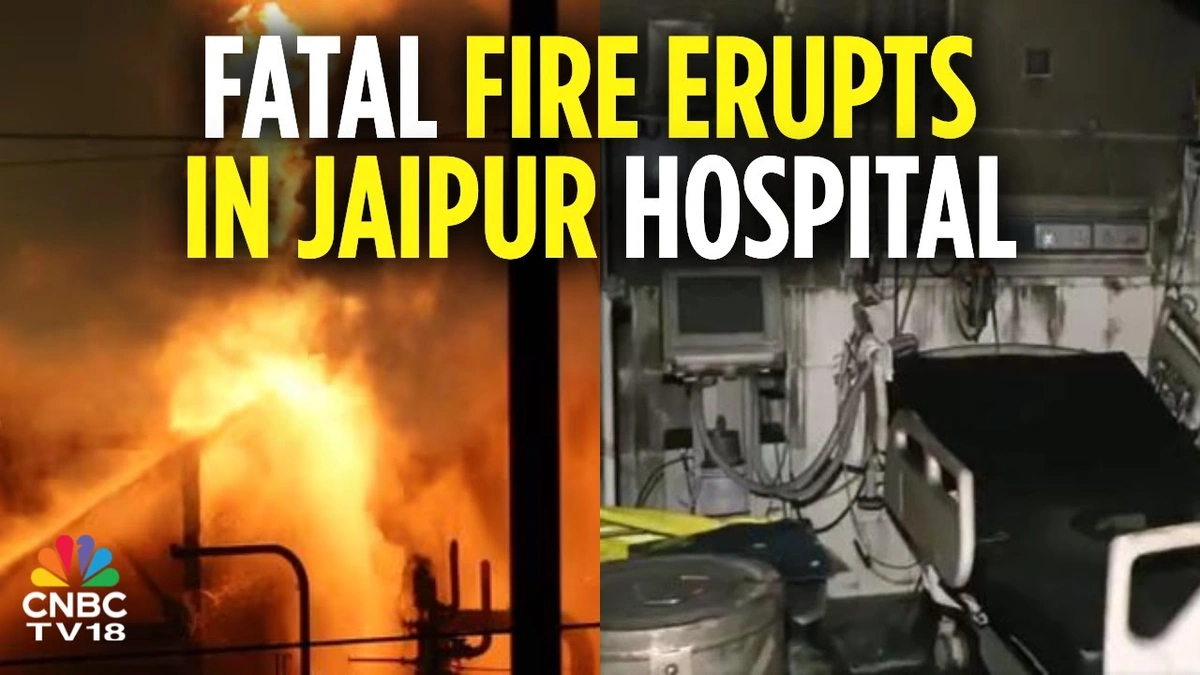Jaipur Hospital Fire | 6 Dead – Short Circuit or Negligence?
The acrid smell of smoke still hangs heavy in the air. A pall cast not just over Jaipur, but over the entire nation as we grapple with the tragic Jaipur Hospital fire. Six lives lost, families shattered, and a haunting question lingers: could this have been prevented? Was it a simple short circuit , a cruel twist of fate, or did negligence play a role in this devastating incident? Let’s dive deeper; this isn’t just news, it’s a stark reminder of systemic issues that need addressing. What fascinates me is how often these incidents reveal deeper flaws in our safety protocols and infrastructure.
The Human Cost | Beyond the Headlines
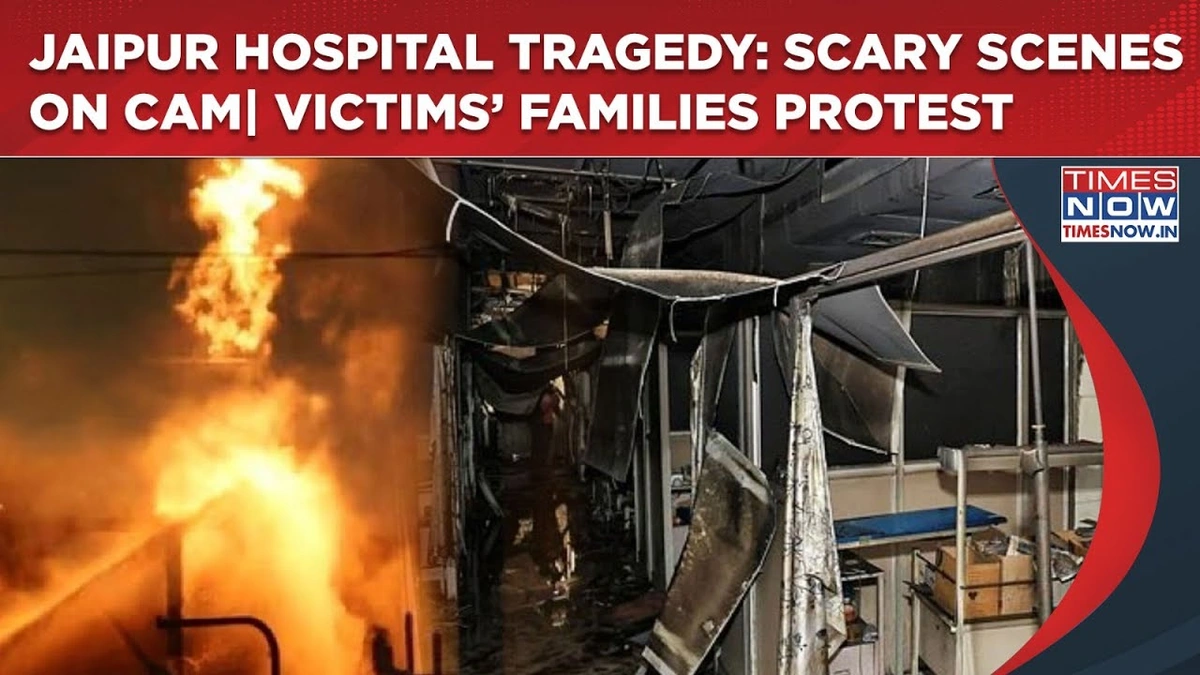
It’s easy to get lost in the technicalities – the fire safety regulations, the building codes, the investigation reports. But behind every statistic is a human story, a life irrevocably altered. Think about the families who received that call, the frantic rush to the hospital, the agonizing wait for news that would never come. This isn’t just about numbers; it’s about the faces, the dreams, and the futures that were extinguished in that fire. We need to remember the human cost to truly understand the gravity of the situation. And, let’s be honest, that’s what gets lost most often in these scenarios.
Tracing the Cause | Short Circuit or Systemic Failure?
The initial reports point towards a short circuit as the primary cause. But, as any seasoned investigator will tell you, things are rarely that simple. A short circuit can be a symptom, not the root cause. Were the electrical systems properly maintained? Were there overloaded circuits? Were there adequate fire suppression systems in place? These are the questions that need answers. The enquiry must go beyond the immediate spark and examine the broader context of hospital safety and preparedness. Was the electrical infrastructure up to code? What kind of fire alarm system did they have in place? If there were safety deficiencies, we need to determine who is accountable. Initial investigations also reveal possible failures in the fire safety mechanisms.
Preventing Future Tragedies | A Call for Action
This tragedy cannot be in vain. It must serve as a catalyst for change, for a renewed commitment to safety and accountability across the healthcare sector. Hospitals, both public and private, need to conduct thorough fire safety audits, upgrade their infrastructure, and train their staff in emergency procedures. Regular drills, functioning fire alarms, and accessible escape routes are not optional extras – they are lifelines. The government needs to strengthen regulations, increase inspections, and hold those who cut corners accountable. It is equally important to ensure the hospitals have fire extinguishers and related equipment in the correct places. What initially thought was a one off, might have underlying reasons to be concerned about. After all, prevention is always better – and infinitely less painful – than cure. More details can be found here .
The Importance of Transparency and Accountability
In the aftermath of such a tragedy, transparency is paramount. The investigation needs to be thorough, impartial, and public. The findings must be shared openly, and those responsible – whether through negligence or deliberate malfeasance – must be held accountable. This is not about assigning blame; it’s about learning from mistakes and preventing future tragedies. The public has a right to know what happened, why it happened, and what steps are being taken to ensure it never happens again. Let me rephrase that for clarity: withholding information only breeds distrust and undermines confidence in the system. As per the guidelines mentioned in various safety notifications, regular checks are very important in a place such as a hospital. What fascinates me is how often these things are overlooked until a tragedy happens.
But, the question arises, will it be forgotten? The government has issued compensations for the victims’ families, but what about prevention? Here’s the thing: it is important for us to be prepared for such a thing and make sure that it does not happen in the future.
FAQ Section
Frequently Asked Questions (FAQs)
What immediate steps are being taken to support the families of the victims?
The government has announced compensation for the families of the deceased and is providing assistance with funeral arrangements.
How can I ensure the safety of my loved ones in a hospital setting?
Familiarize yourself with the hospital’s emergency procedures, identify escape routes, and ensure that staff are properly trained in fire safety.
What are the key fire safety regulations that hospitals must adhere to?
Hospitals must comply with the National Building Code of India (NBC) and relevant state-specific fire safety regulations, including regular inspections, maintenance of fire suppression systems, and staff training. Wikipedia provides a good overview of the national building codes .
What can be done to improve fire safety standards in hospitals across India?
Increased government oversight, stricter enforcement of regulations, mandatory fire safety audits, and investment in modern fire suppression technology are crucial steps.
Who is responsible for ensuring fire safety in hospitals?
The hospital management, the local fire department, and the government all share responsibility for ensuring fire safety.
Where can I find updates on the ongoing investigation?
Keep an eye on reputable news sources and the official website of the Rajasthan government for updates on the investigation.
The hospital administration is responsible for ensuring the safety of the patients in the hospital. There are certain checks that they must follow.
Final Thoughts
The Jaipur Hospital fire is a tragedy that should never have happened. It is a wake-up call for all of us – a reminder that safety cannot be taken for granted. It demands that we prioritize human life above all else. Let us hope that the lessons learned from this tragedy will pave the way for a safer, more secure future for all. The loss of life cannot be reversed, but we can honor those who perished by ensuring that such a tragedy never occurs again. The health ministry should provide better guidelines to the hospital for better functioning. More details can be found here . We must all be more aware. It’s a shared responsibility, and lives depend on it.
